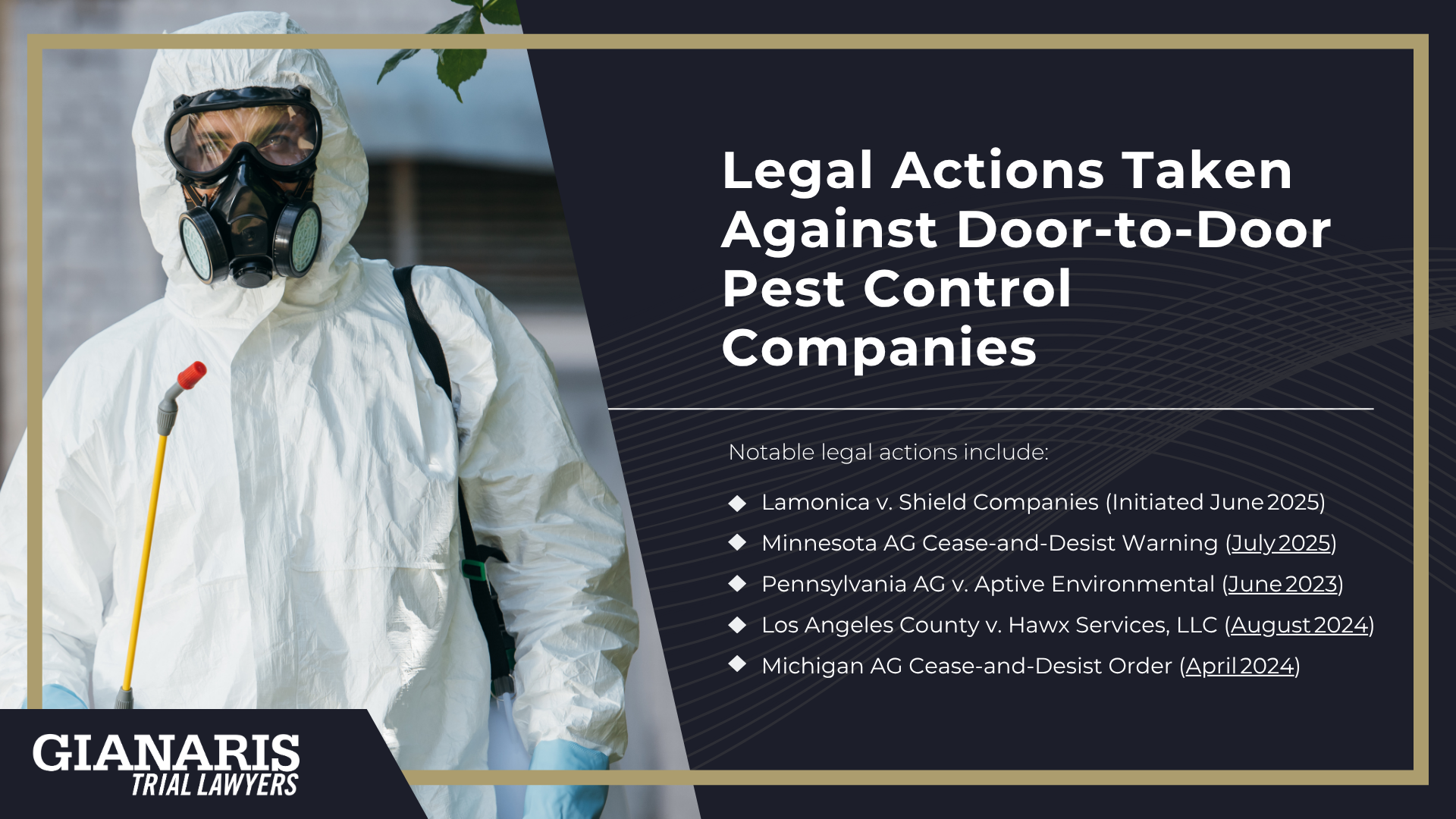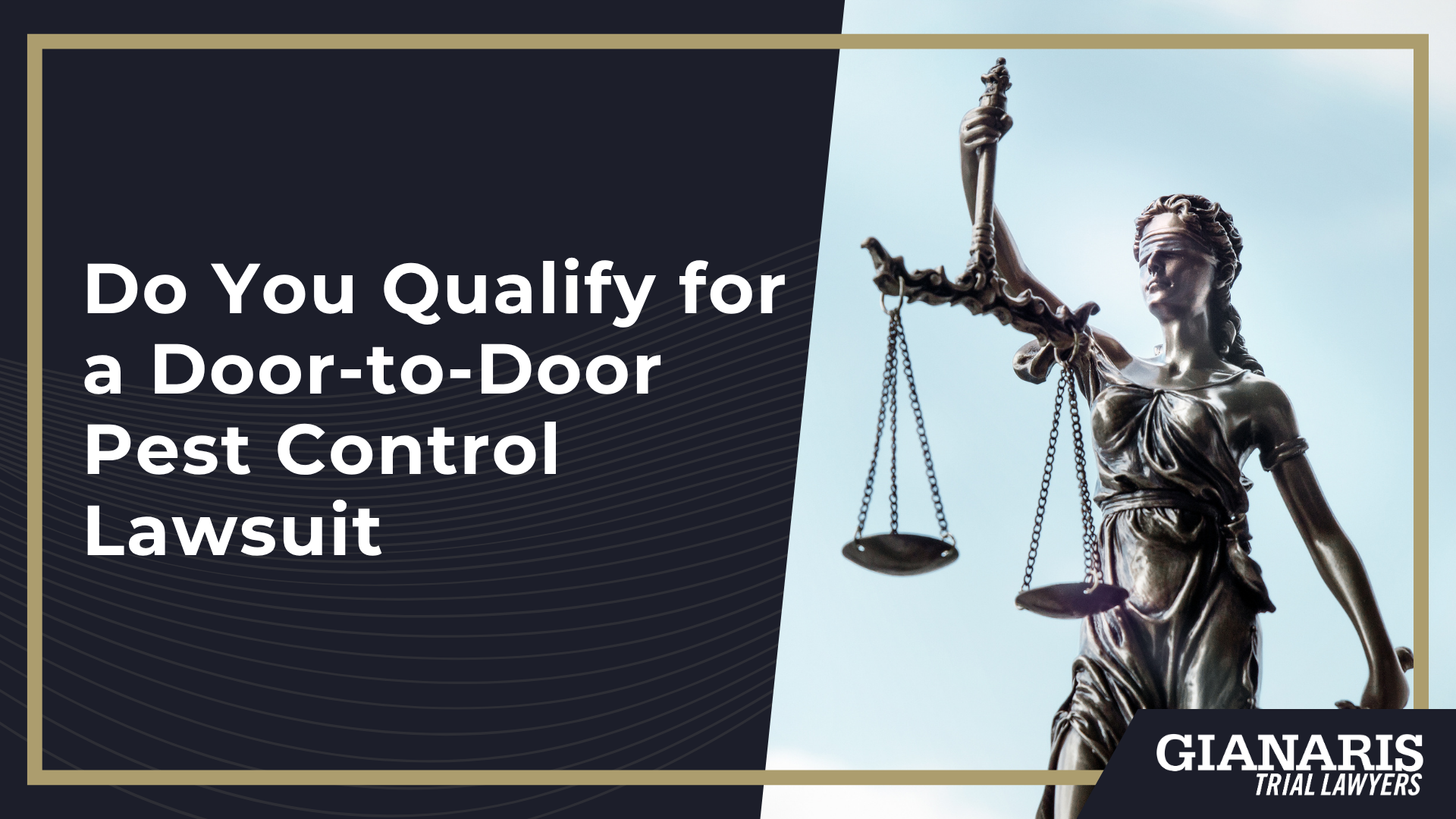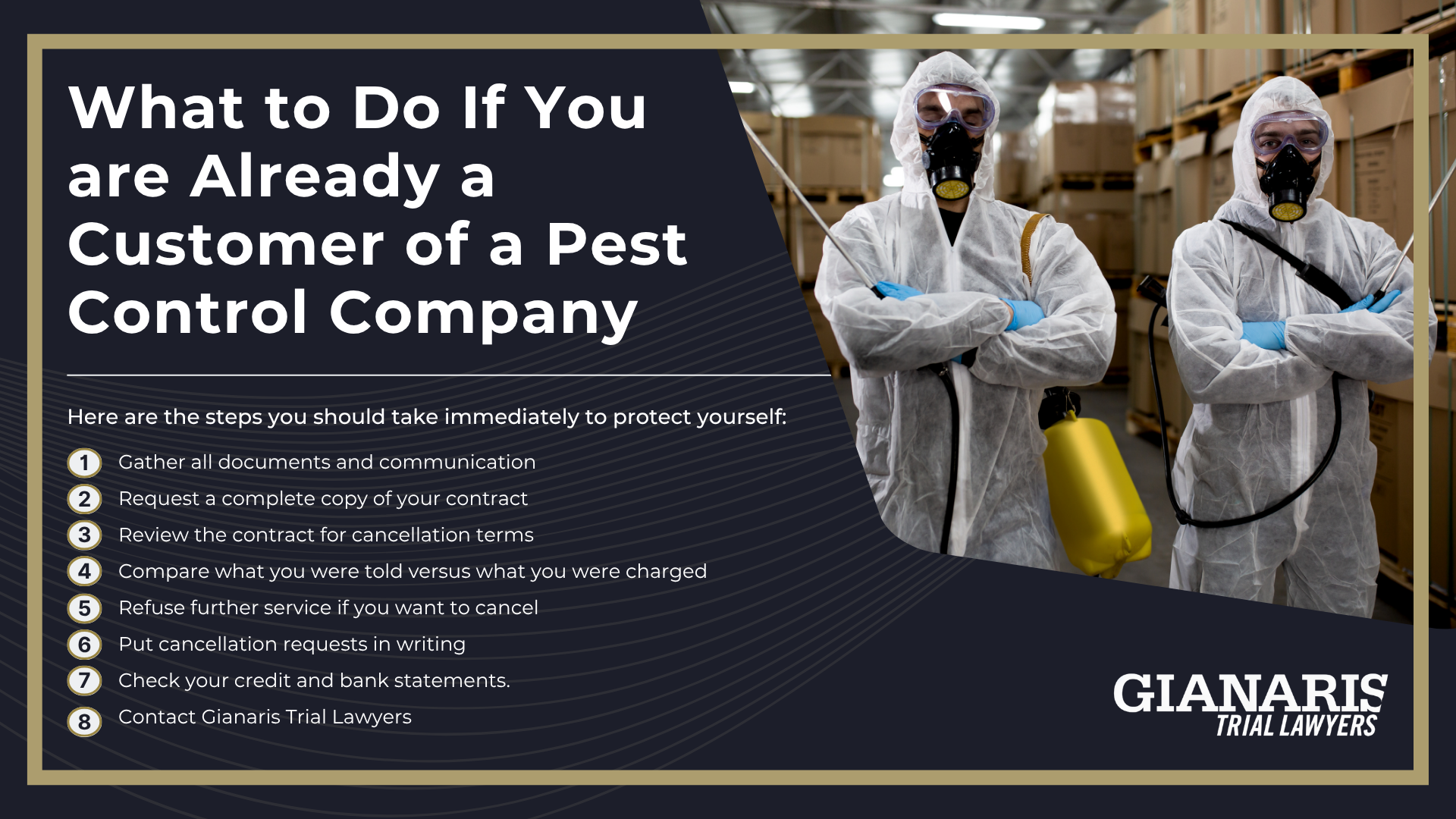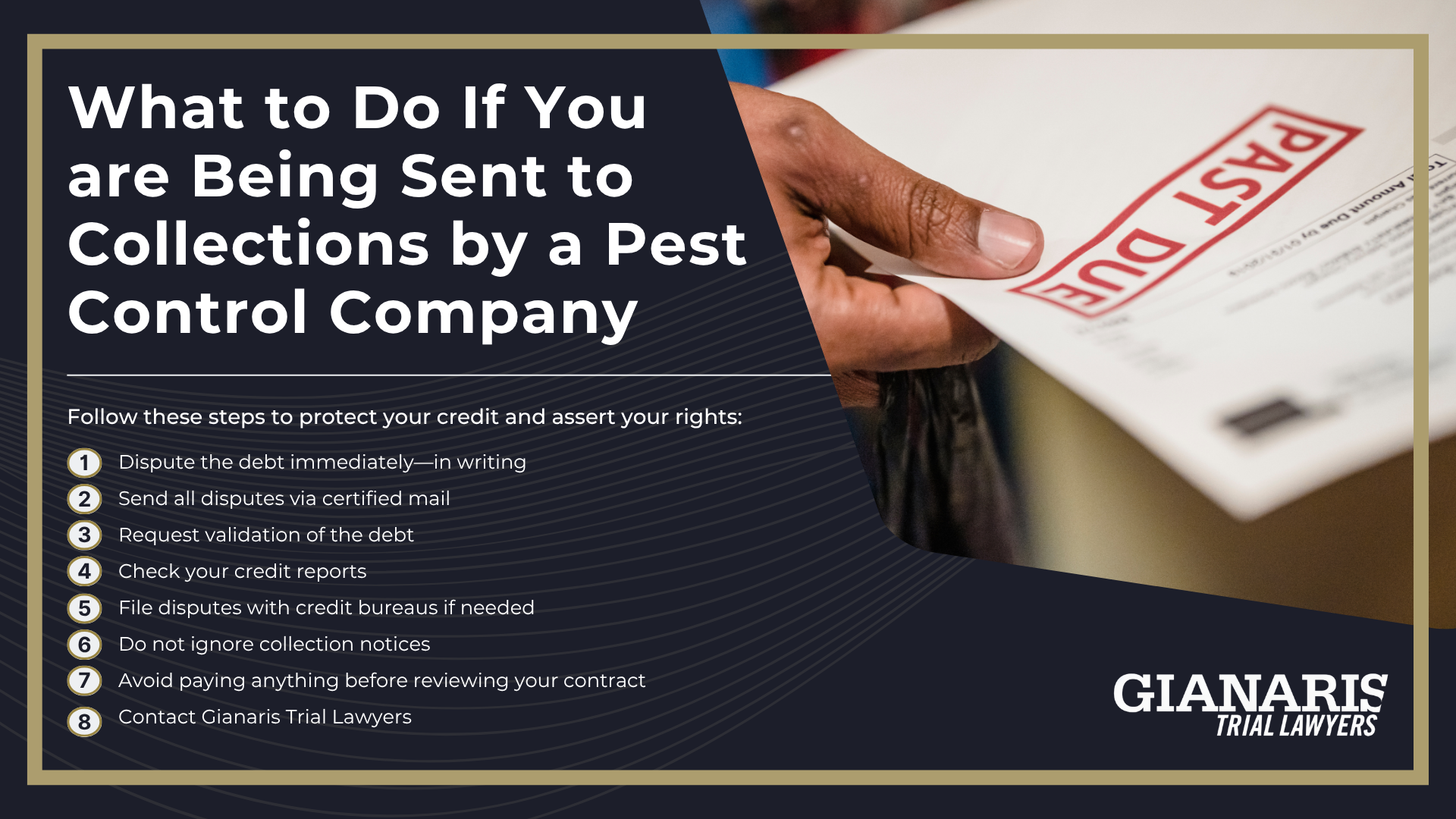At this time, EcoShield Pest Solutions is the only pest control company currently facing a nationwide class action lawsuit filed by Gianaris Trial Lawyers.
That case, focused on deceptive door-to-door sales practices, has brought public attention to a sales strategy that may be used more broadly within the door-to-door pest control industry.
Some similar companies use urgency, high-pressure sales tactics, misleading offers, and hidden contract terms to lock people into recurring payments.
These common tactics target unsuspecting homeowners by leveraging fear of infestation and trust in uniformed representatives.
Often, sales reps arrive in marked or unmarked vehicles, knock unannounced, and claim your home has signs of pest activity, or that your neighbors have recently been treated.
They may offer a free inspection or low-cost initial treatment, only to convert that offer into a costly service agreement after a quick spray.
Many clients don’t realize they’ve signed up for a long-term purchase until they try to cancel and are hit with fees or collection threats.
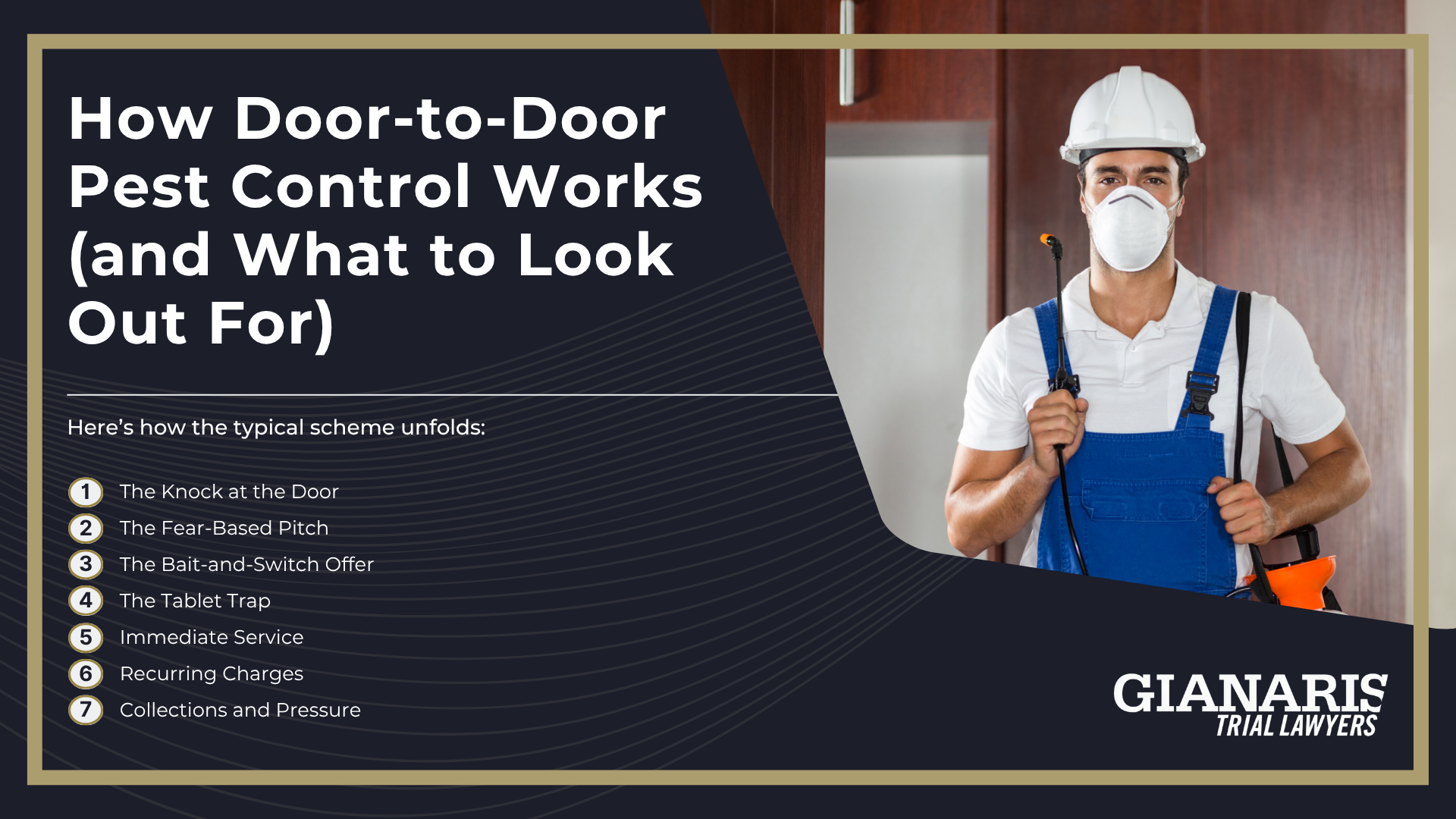
While the legal focus is currently on EcoShield, the warning signs apply more broadly, and consumers across the country should be on alert for the same pattern.
Here’s how the typical scheme unfolds:
- The Knock at the Door – A salesperson shows up unannounced, often claiming they’re “already treating other homes in the area.”
- The Fear-Based Pitch – They tell you there’s visible pest activity on your property, or that your home could be at risk, and offer a free inspection or heavily discounted initial treatment.
- The Bait-and-Switch Offer – You’re told you’re getting a deal today only—often framed as a neighborhood discount or special rate if you act fast.
- The Tablet Trap – The rep presents a contract on a tablet, showing only a signature field, without giving you time to review the full agreement or explain its terms verbally.
- Immediate Service – A technician is dispatched to perform treatment the same day, which EcoShield and others use as justification for enforcing the contract and denying refunds.
- Recurring Charges – You later learn you’ve agreed to a long-term subscription (often 12 to 24 months) with auto-renewals and strict cancellation fees.
- Collections and Pressure – If you cancel, the company may demand repayment of the “discount” or send your account to collections, threatening your credit if you refuse to pay.
If any part of this process feels familiar, you’re not alone, and legal options may be available.
While EcoShield is the first company being held accountable, more lawsuits may follow as the practices of these door-to-door pest control companies comes to light.
If you suspect you were approached or enrolled under similar circumstances, please get in touch so we can explore whether more legal action is warranted.
What Services Do These Door-to-Door Pest Control Companies Offer?
Door-to-door pest control companies typically provide a wide range of residential and commercial treatments, similar to traditional pest providers, but with an upfront push for immediate signup and recurring service.
These companies often offer a free inspection or discounted initial treatment to entice homeowners, then convert the agreement into a long-term service plan.
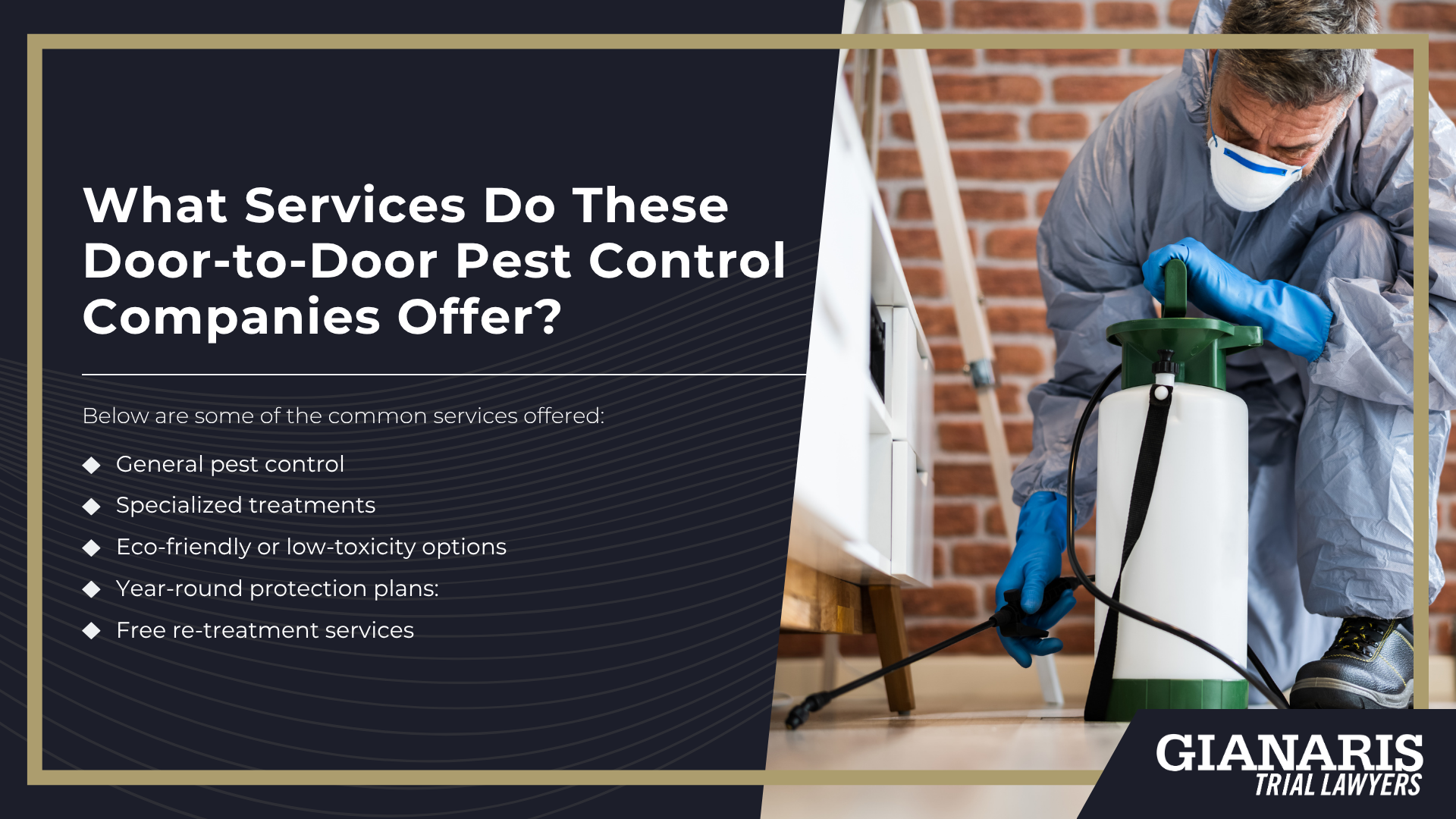
Below are some of the common services offered:
- General pest control: Targeting ants, spiders, roaches, mice, and more both indoors and outdoors.
- Specialized treatments: Including insulation, bed bugs, mosquitoes, termites, carpenter bees, wasps, and rodents.
- Eco-friendly or low-toxicity options: Using “green” or “environmentally friendly” chemicals aimed at supposedly safely protecting homes.
- Year-round protection plans: Recurring visits (typically quarterly) to maintain long-term pest prevention.
- Free re-treatment services: Guaranteed follow-ups if pests persist.
While these services can be beneficial to homeowners, the sales structure (door-to-door pressure, on-the-spot contract signing, and bundled pricing) can lead to hidden terms, lengthy commitments, and unexpected costs.
If you were approached and asked to “sign today” for a deal or urgent pest concern, it’s important to fully understand the service plan, contract terms, and your cancellation rights before committing.



